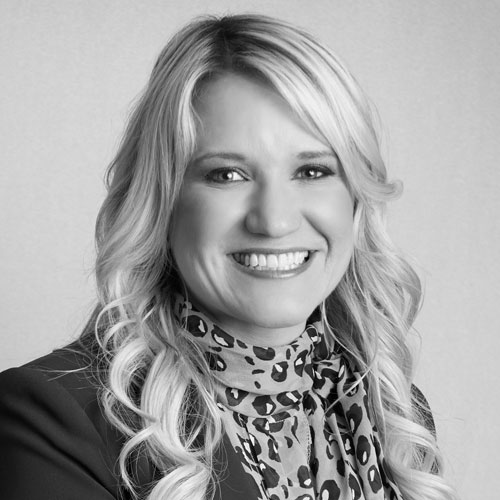Most people can pinpoint the moment that led to the career path that they chose, but few have origin stories as personal as that of Chad Eckes. He found his calling more than a decade ago while working on an all-digital hospital in Wisconsin. This ahead-of-its time vision included building from the ground up a hospital that would be paperless and would have no nurse stations or medical records department. Rather, it would operate with tablets that would house all of its patients’ medical information.
Halfway through the implementation, Eckes received a call that his mother had been badly injured in a pressure cooker explosion. She suffered second- and third-degree burns from her neckline up to her hairline that resulted in her face and neck being severely scalded.
When Eckes arrived to the emergency room, his mother was in excruciating pain because the doctors were hesitant to give her any painkilling medication. Her medical allergy bracelet said she was allergic to drugs, but not which ones. As he watched his mother scream in pain with her face packed in ice, Eckes realized that the healthcare environment was in need of transformation.
“As I witnessed this action and saw my mother in such sheer pain, it dawned on me the need for fully integrated processes and EMRs where, within seconds, you can pull up needed information, identify the allergies, and appropriately treat the patient versus the paper-based world that had inherent delays in time and required significant human intervention,” Eckes says. “That was the impetus for me to look at this healthcare industry and realize that the industry is 10–15 years behind leading industries. I realized that my expertise from financial services can make a difference so that other loved ones wouldn’t have to deal with what my mom did.”
The initiative Eckes showed then has carried into leadership roles at Cancer Treatment Centers of America and Wake Forest Baptist Medical Center, where he currently works as executive VP, corporate services and chief financial officer, overseeing numerous divisions that include finance, human resources, information technology, facilities, managed care, and hospital business solutions. That collection of responsibilities includes 4,300 employees. In order to do his job and help the medical center run effectively, Eckes focuses on a handful of key approaches: be crystal clear about the company’s vision, mission, and values; lay out clear strategies; build employee engagement; focus on customer service; create a transparent environment where employees feel free and comfortable to raise any and all issues in the workplace; focus on results; and hold people accountable to those results.
“We exist to improve health, and if you look at all of our missions, they all align back to that,” Eckes says. “I feel it’s my job to be connecting people to that mission and be able to make it real. This industry begins and ends with an engaged workforce that is aligned to a high calling: caring for patients.”
When it comes to Eckes’s overall leadership style, he admits it’s always evolving. As a baseline though, he borrows what he learned from his own mentors. Over the years, he’s seen his mentors’ leadership styles result in highly rated customer service environments, highly engaged workforces, laser-focused strategies, industry-leading quality, and inspiring cultures.
“I have had great mentors, and that is really how I discovered the style of leader that I wanted to be,” he says.
Eckes loves his job. In fact, he has a tough time picking just one thing as his favorite part of the workday. However, he especially enjoys working with people at all levels of the organization, building engaged teams, and seeing people progress from a leadership development standpoint. He also loves working with customers—and that includes the patients that Wake Forest treats and the students it trains.
“We have an important role in healthcare because we’re not only providing the physical healing aspect, but we also have the responsibility of the emotional support for our patients,” Eckes says. “A unique aspect of being an academic medical center is we have a second set of customers in that we train the next generation of healthcare providers. Any impact we can have on them is so critical because it influences the care of patients wherever they go to practice medicine after Wake Forest Baptist Medical Center.”
Wake Forest isn’t just looking to treat patients; it wants to make an impact on their lives, too. It has a cancer center dedicated to finding unique ways of curing the disease, helping provide patients with a higher quality of life, and extending patients’ lives.
“I don’t think you can touch another human being more profoundly than to impact their wellness and provide quality of life,” Eckes says.
Eckes and the Wake Forest Baptist Medical Center have also stepped up customer service efforts on the financial side. It has rolled out population health management, a program to proactively help people who would otherwise put off getting medical care because of the cost. Now, rather than waiting until the diagnosis of an ailment such as diabetes, Wake Forest is focused on providing preemptive care to high-risk populations. This allows the medical center to increase quality while decreasing cost in the healthcare environment.
The medical center is also focused on the financial health of patients and has partnered with Commerce Bank to give financial options to patients. The partnership has created zero percent financing of patients’ responsibility so they can get a procedure done when needed and pay the deductible over time.
“Addressing financial concerns—such as, ‘How do we pay the deductible?’—can have a really profound impact on a family,” Eckes says. “The most important test that anybody in healthcare can provide is, ‘Would I have wanted this clinical or financial experience for my mother, father, wife, or kids?’ That standard is always in the back of mind. Considering all of my family’s care is provided by Wake Forest Baptist, the test cannot be more valid.”

